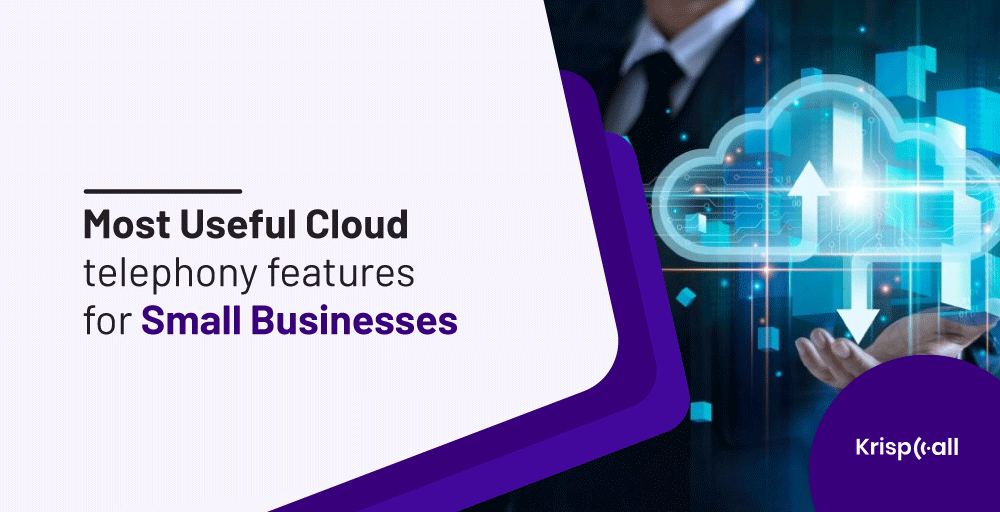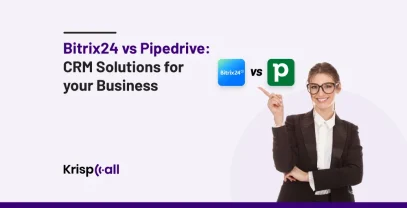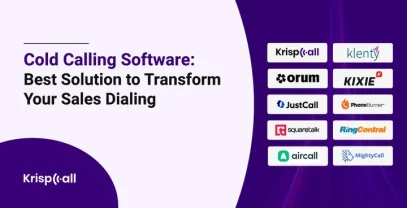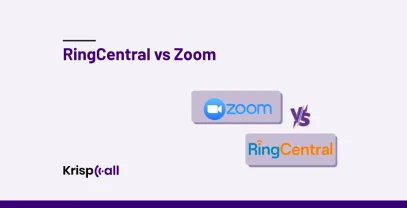Nowadays, installing a cloud telephony system is the go-to strategy for small businesses to handle business communication with fewer resources.
Cloud telephone systems enhance work productivity using their salient features to improve the customer experience. Businesses that offer better customer experience are usually the ones succeeding quickly.
In other words, the features of business phones are responsible for fluent interaction between you and your potential leads. These features assure tactical advantage to plan a strategy for your business’s sales process.
Each feature has its own unique functionality and purpose of use. Here in this article, we will learn about the 20 most useful cloud telephony features for your small business.
20 Most Useful Cloud Telephony Features For Small Businesses
A telephone is used for more than just making and receiving phone calls. Your whole business depends upon phone calls. So implementing functions on a cloud phone system for easing call management and accessing sales processes is an ideal scenario. The following are some of the useful features that you need on your phone.
1. Call Forwarding
Call forwarding is a VoIP function that allows users to divert incoming calls to a different phone number or service. Call forwarding is sometimes known as “call diverting“.
Call forwarding has become a regular feature of several phone systems. It may dramatically improve how you manage all of your calls, regardless of whether your company handles all calls through one phone line or has a separate call center.
Small businesses may want all of their phones to ring on office, home, or personal mobile to ensure that consumers receive fast responses, or provide a local presence. It improves the customer’s phone engagement experience in the best way possible.
2. Call Monitoring
Call monitoring is a part of the call management feature that enables you to listen to calls in order to improve customer interactions.
Usually, you or your team members can listen to real-time calls, but mostly the quality assurance team uses it after the conversation has ended to check call quality. It assists in training new recruits and making business decisions to improve their efficiency and productivity.
📄 Read more about this article: Live Call Monitoring: How It Transforms Call Center Operations
3. Call Routing
Call routing is a call management tool for business phone systems. It queues incoming calls before directing them to a specified person or group of persons based on pre-determined rules and criteria. The call is routed before someone picks it up on the other end.
It analyzes attributes like call volume, time of day, language preferences of the caller, the department requested, and agent availability to route calls. It works to automatically disperse inbound calls. That’s why call routing systems are sometimes known as Automatic Call Distribution (ACD).
4. Auto Attendant
In cloud telephony, an auto-attendant is a voice menu system that allows callers to be switched to an extension without going through a telephone operator or receptionist. The auto-attendant, often known as a digital receptionist, is a prominent element of call center solutions since it allows callers to move more quickly through the call flow.
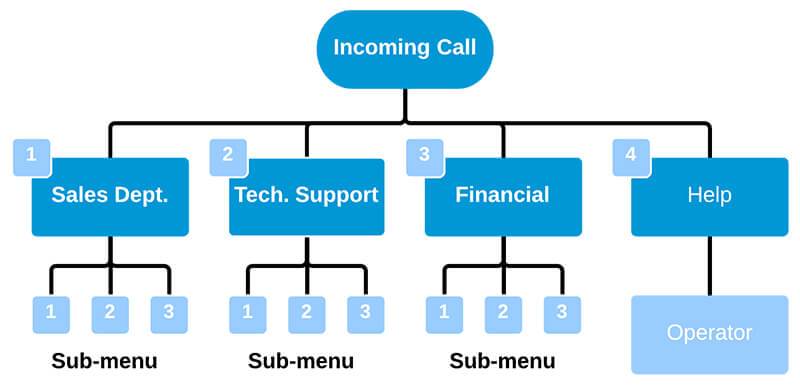
It is a very valuable and cost-effective feature for a business since it automates and simplifies the incoming phone call operation, replacing or assisting the human operator.
5. Call Recording
Call recording is a safe and dependable solution to record two-way audio from a phone call in the cloud. From enterprise-grade call centers to daily small enterprises, this has grown as one of the most reliable VoIP features.
Individuals and businesses can use call recording to keep track of verbal agreements. VoIP call recording might also help you remember facts from a fast-paced conversation.
6. Call Analytics
Call analytics uses artificial intelligence (AI) technology that collects data from inbound phone calls. Call tracking data such as the caller’s identity, phone number, and marketing source are included in all analytics. Conversation intelligence data from the content of the conversations is also included.
You may utilize the data to make better campaign budgeting decisions, identify issues that are lowering conversion rates, target callers with ads based on the substance of their discussions, and generate more leads for less money.
7. Voicemail
A voicemail is a digitally stored voice message that a caller leaves for the intended recipient to recover later. Depending on the business phone system used by the recipient’s firm, the stored message can be retrieved via phone, desktop, email, and other communications devices.

It includes a user interface that allows you to pick, play, and manage messages. The sender of the voicemail might choose to play or transmit the message using delivery features. There are additional alerting tools that alert voicemail recipients to messages that have been left unanswered.
8. Interactive Voice Response (IVR)
IVR or Interactive Voice Response, and it is a type of automated phone system. It allows incoming callers to access information via a voice response system of pre-recorded messages without having to speak to an agent. It utilizes menu options via touch-tone keypad selection or speech recognition to have their call routed to specific departments or specialists.
9. Virtual phone numbers
A virtual phone number can be used on any phone, including VoIP desk phones, cell phones, and softphones, to make or receive calls using the internet. It’s ideal for office workers as well as those who work from home. It is becoming increasingly popular.
Businesses utilize them to receive calls from consumers all around the world, regardless of their location. It allows them to maintain constant contact with their customers.
10. Third-Party integration
VoIP-based cloud telephony allows users to integrate third-party applications for better functionality and user experience. And with cloud telephony-CRM integration, you can unleash and rejoice in extra telephony features.
The limitation of integrations depends on the service providers; some allow many while some few. The ones that enable you to integrate your existing system are the best as you do not lose your data and have fewer problems.
Soon, all the cloud telephony systems will come with an in-built CRM, and the ones that do not will surely place a portal for third-party integration.
This integration allows you to correlate your work between different applications and get the most out of it with efficiency and greater effect.
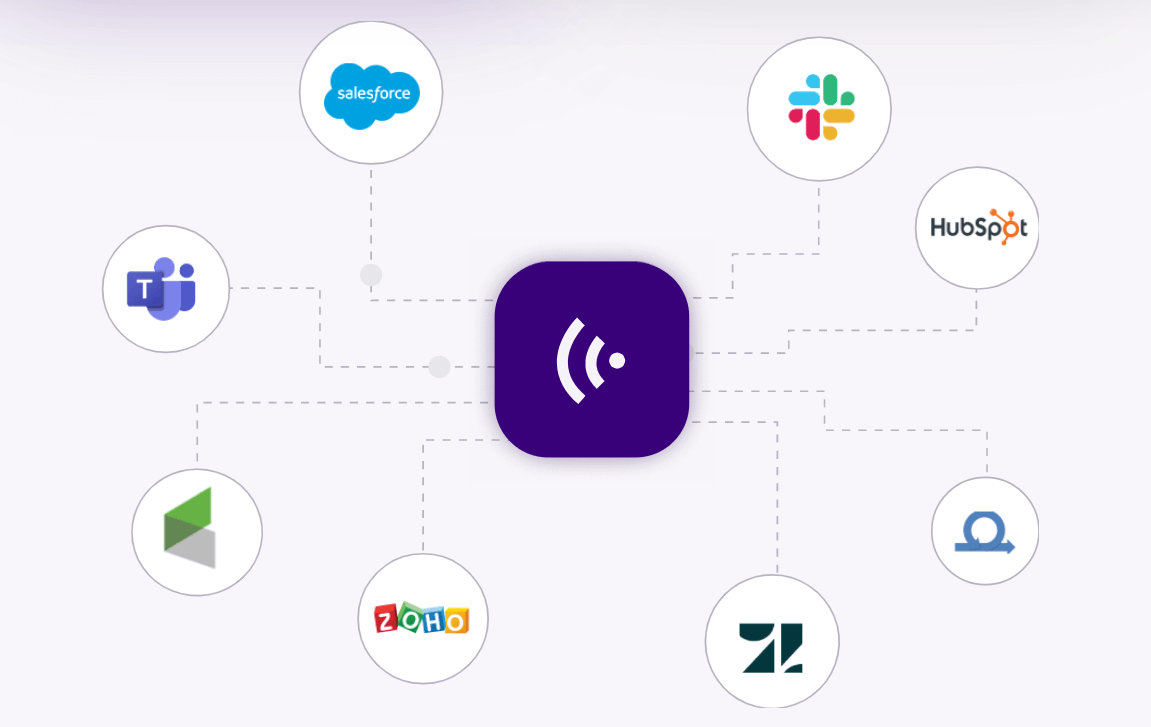
The process of linking a CRM platform to various applications is known as CRM software integration. Its primary goal is to transfer data between the CRM platform and the applications.
It stores correct data from your business software to provide you with a complete picture of your organization and customers.
It allows for task automation through process automation. It eliminates the need to switch back and forth between CRM platforms and apps.
11. Audio conferencing
Audio conferencing is a cloud-based phone tool that allows people in various places to hold audio meetings without having to go to the same place.
Since it reduces the time, money, and headaches involved with business travel, this technology is useful for business users in distant cities or even other nations. Routine meetings, business negotiations, and job interviews are all possible with video conferencing.
12. SIP trucking
SIP (Session Initiation Protocol) is an application layer protocol that allows you to use an internet connection instead of traditional phone lines to run your phone system.
The backbone of phone lines used by multiple users that connect to a telephone network is trunking. SIP Trunks connect an on-premise phone system to the public switched telephone network, often known as PSTN via Voice over Internet Protocol (VoIP).
13. Number Porting
Number porting is the process of transferring your existing phone number to the cloud. You must notify your phone service provider as well as the cloud-based internet telephony service provider about the change in your phone number.
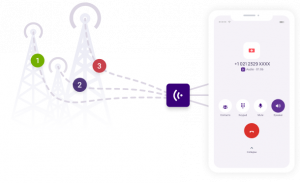
The procedure entails some documentation, and it normally takes 1-4 weeks to port your phone number. Your present phone number will become your new virtual phone number after the porting is done. Your contract with your previous phone service provider will be canceled.
📄 Read more about this article: Best Call Logging Software
14. Custom messages
You create custom messages and call greetings to utilize in the dial plan for your company’s phone number. Business voicemail, auto-attendants, and even call queues can all use these custom call greetings or messages.
Custom messages can be broadcast to all callers. Callers may want to reach a specific department or even special VIP callers, depending on their phone number.
15. Click-to-call
The click-to-dial widget is a web-based and mobile solution that dials a phone number automatically when you click on it. Typically, it is a button on a company’s website. It allows you to speak with a customer support person from the website you’re viewing in real-time.
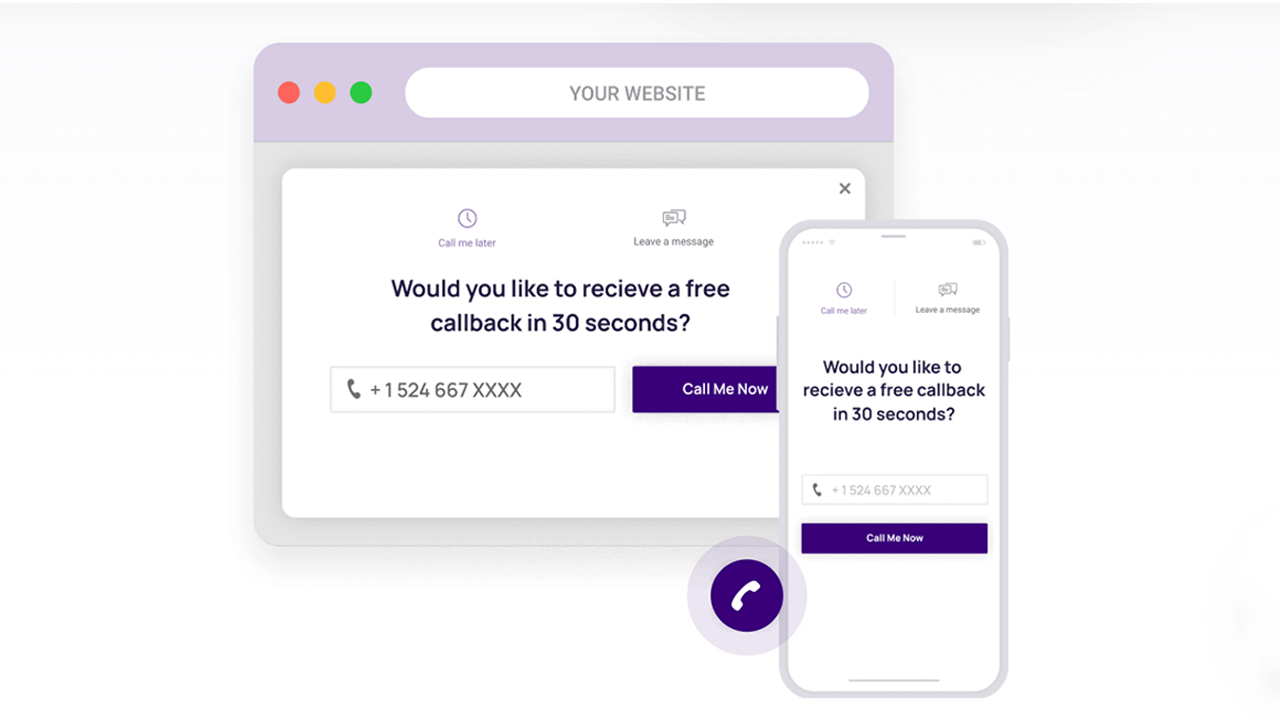
You may be asked to input your phone number while using some Click-to-dial widgets. You will receive a call from the sales staff immediately after providing your phone number.
16. Call Queuing
Inbound callers are directed to one or more virtual queues using call queuing. This technology enables your business to reduce phone wait times while also guaranteeing that your inquiries are sent to the appropriate person as quickly as possible.
They will be placed into a virtual queue after logging the nature of their inquiry through an automated menu. Regular vocal updates will keep them informed of their progress, while the system will route the caller to the first available operator.
17. Instant Messaging
The exchange of near real-time communications via a stand-alone application or embedded software is known as instant messaging. IM sessions are usually between two users in a private, back-and-forth communication format.
Many IM applications have added functionality for sending more than simply text-based conversations as technology has advanced, including file transfers and image sharing. These messages can be accessed anytime.
18. Speech to text
Any incoming and outgoing calls can be recorded in a cloud telephony system. These voice calls can be documented into text using the speech-to-text feature.
It’s cool to use it for data analysis, keyword research, and training purpose. Sometimes if any important details are missed, then this feature helps in retrieving such information. This allows you to gain clarity.
📄 Read more about this article: Call Parking: How Does It Help To Handle Calls Like A Pro
19. Auto dialer
An auto-dialer feature is an outgoing dialer that enables you to automatically dial the phone numbers of the leads. This saves a huge amount of time in your work.
It allows you to connect a customer to a live agent after the call has been resolved on the customer’s end. As a result, there is a high level of productivity and efficiency. You can assign calls to different agents using an auto-dialer based on certain parameters.
20. Call Screening
Call screening assists you in deciding whether to accept or reject an incoming call. Caller IDs are used to filter which calls should be declined, accepted, escalated, or sent to voicemail.
Crank calls, spam, and other unwanted calls are reduced by using call screening. Agents can also use it to prioritize calls and accept only the most important ones on their phones or devices.
21. Group Ringing
This feature allows firms to ring multiple agents at a time so that any one of the free agents answers the call, which aids the customer experience.
Agents can quickly transfer/forward/route calls to other agents if they require an expert’s help on the matter.
22. Shared Business Number
Cloud telephone system functions using a shared business number that is mappable with different phone numbers or devices.
This number can be of any format, such as landline, mobile, or toll-free. It allows you all sorts of communication regardless of geographical location.
Top 5 Cloud-Based Business Telephony Systems
We have performed tests on several cloud-based telephone systems. Most of them perform above average, and they have distinguished qualities.
Here are the top 5 cloud-based business telephony systems:
1. KrispCall
KrispCall is the best cloud-based telephony system emerging with simple and elegant features to support your business requirements. It is a platform-independent application that provides a unified dashboard to perform all your tasks without going back and forth.
You can quickly implement the system with powerful, robust, and useful cloud telephony features like sequential calling, group calling, automated call distribution, IVR, etc.
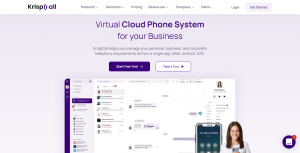
It also offers ample scalability and flexibility to your cloud phone system and allows integration of the most popular CRM, Zapier, helpdesk, and eCommerce tools.
Some notable additional features include capturing leads on the website, sales automation, sales dialers, etc.
Customers reviewed the best feature: Unified Dashboard [Access everything from a single board]
2. AirCall
AirCall is one of the best cloud-based telephony systems for businesses that provides seamless integrations with most of the popular CRM and helpdesk tools.
It offers immense scalability and flexibility to business owners. You can enjoy 100+ country phone numbers and 100+ third-party integrations.
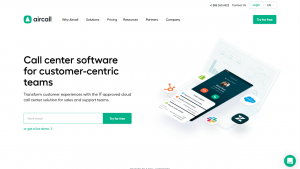
The additional useful cloud telephony features like a browser extension, desk-to-desk calls, conference calls, hold music, information locator, session recording and summary, etc., make this cloud telephone interactive and well-equipped to meet business needs of all kinds.
Customers reviewed the best feature: Call Types [device flexibility]
3. RingCentral RingEX™
RingCentral RingEX™ is the best cloud-based telephony system for businesses that offers a free trial for 20 users a month. It helps you simplify your tasks and optimize workflows through video, audio, and messages.
RingCentral MVP guarantees you 99.99% uptime with seven layers of protection and privacy.
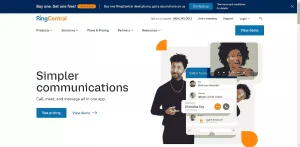
It includes useful cloud telephony features like meeting coordination, Software Pairing, VoIP Number, Instant Messaging, and others to correlate your business needs. It has collaborated with big names like Renault, AXA, Columbia University, Orange, etc.
Customers reviewed the best feature: VoIP Number [a unique number that is dialable from anywhere]
4. Intermedia Unite
Intermedia Unite is one of the best cloud telephones that has stayed out of the limelight. It includes everything a business needs to meet the market fluidity and maximize efficiency.
It is a reliable and completely integrated cloud phone that helps enterprises minimize expenses, simplify management, and increase productivity.
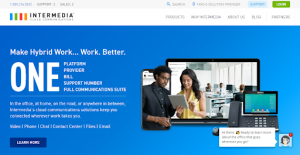
Some of the notable and additional useful cloud telephony features include holding music, VoIP number, Screen Sharing, Desk-t-Desk calls, conference calls, etc. This application should get the attention it deserves.
Customers reviewed the best feature: Phone Calls [clarity; HD voice]
5. Freshdesk Contact Center
Freshdesk Contact Center [formerly known as Freshcaller] is a simple yet reliable cloud-based telephony system.
It provides 90+ country numbers at affordable prices, and you can set up the system easily with continuous customer support.
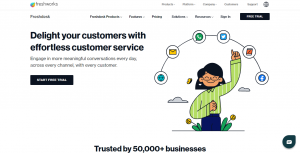
Freshdesk allows 30+ third-party integrations with popular CRMs, eCommerce apps, and agent productivity tools.
It offers you powerful analytics and reporting for real-time insights to empower customer experience and boost agent productivity.
Customers reviewed the best feature: Administrator Access [guidance during live calls; call barging]
What are the advantages of VoIP-based cloud telephony?
There are many advantages of VoIP-based cloud telephony over traditional telephony, but we shall discuss only a few more relevant ones.
1. Low cost: cost-effective for all businesses
Cloud telephony system deployment doesn’t require hardware infrastructures, and businesses do not need to invest in physical infrastructures like the traditional plain old telephony systems.
According to their investment capability and requirements, every type of business can afford it [system]. Various pricing plans come in handy when choosing the right one to suit your business needs.
2. No maintenance
The service providers will take care of the installation, updates, upgrades, and maintenance of the cloud telephony systems.
Customers [corporations] have the freedom to focus on the business parts rather than worrying about the infrastructure. You will have to pay fees to the service provider based on your subscription plans and nothing more.
3. Security and backup
The service providers are responsible for security also. They deploy their best teams to maintain a healthy environment and disseminate all the threats before hampering customer data.
They provide unparallel protection using the best security services available in the market.
Even if they fail, they have backups to maintain less than a percent of downtime. Backups are stored all over the globe redundantly for safety purposes.
If anything happens to a server, the server from the next location will cover up the losses.
4. Scalability
It is one of the important features of cloud-based services. It allows you to scale up and down whenever you want to meet your business needs. Scaling up will be effective in real-time so will the scale-down.
You need to contact the sales department for the services, and the best part is you don’t need an upfront payment.
5. Flexibility
It is another important aspect of cloud-based telephony as you have the freedom to work from any place of your comfort. You do not have to be seated at a place like the traditional telephony systems required. All you need is a reliable internet connection and login credentials, and you are good to go.
Wrapping up
Each cloud telephony feature is useful in assisting your hectic business schedule. These features packaged together in one platform allow you to focus on getting the best cloud-based phone system for running your business.
You learned about the most useful cloud telephony features; now, you can pick one that best suits your business needs. It is always better to test a demo and use a free trial if they allow it.
Talking about cloud telephony platforms, KrispCall has all solutions for your business communication because of its amazing lineup of salient features. It is well known for its unified callbox, a dedicated all-in-one dashboard for easily accessing all the aforementioned 20 useful cloud telephony features, and even more.
With KrispCall, you won’t have to look elsewhere to get the best VoIP phone experience. Not to mention its unbelievable subscription price as KrispCall is one of the cheapest business phone services in the market. Subscribe to KrispCall now and enjoy its sophisticated features.

